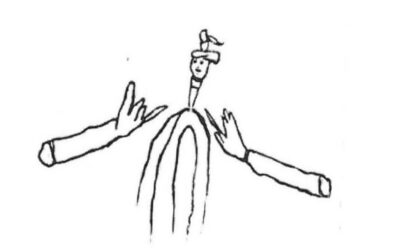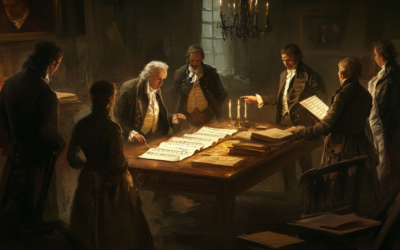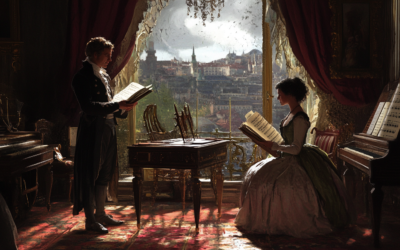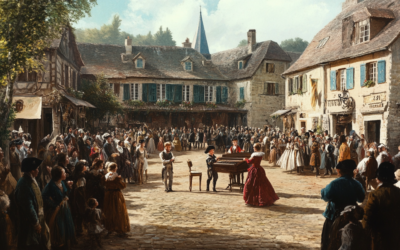The London Notebook
Mozart's Early Missteps and Misconceptions
The London Notebook exposes the limitations of young Mozart’s compositional skills and questions the myth of his early genius. His simplistic pieces, fraught with errors, reveal a child still grappling with fundamental musical concepts.
Mozart: The Fall of the Gods
This book offers a fresh and critical look at the life of Wolfgang Amadeus Mozart, challenging the myths that have surrounded him for centuries. We strip away the romanticised image of the “natural genius” and delve into the contradictions within Mozart’s extensive biographies. Backed by nearly 2,000 meticulously sourced citations, this work invites readers to explore a deeper, more complex understanding of Mozart. Perfect for those who wish to question the traditional narrative, this biography is a must-read for serious music lovers and historians.
“The celebrated music from this period may owe more to Leopold’s influence than to Wolfgang’s own abilities.”
Mozart: The Fall of the Gods
In September 1764, Leopold Mozart penned a letter to Lorenz Hagenauer from Chelsea, revealing that he had been gravely ill since early July. During this period, young Wolfgang Mozart, then only eight years old, was compelled to pause his concert tours and spend nearly two months in Chelsea. This hiatus led Wolfgang to compose a collection of forty-three simple keyboard pieces, recorded in a notebook Leopold titled ‘di Wolfgango Mozart à Londra’ (by Wolfgango Mozart in London).
These compositions are often dismissed as mere exercises for a child, lacking the complexity and sophistication associated with Mozart’s later works. Unlike Beethoven’s sketchbooks, which are revered for their insights into his compositional processes, Mozart’s London Notebook reveals the young composer’s experimental attempts at various forms and structures, but with little success. The period of inactivity due to Leopold’s illness and Wolfgang’s lack of keyboard access led him to create pieces that, while intended as exercises, are frequently criticised for their lack of harmonic sophistication and compositional maturity.
Critics like Abert have downplayed the significance of these works, suggesting they are nothing more than trivial exercises. Yet, these pieces provide valuable insight into the music that captivated audiences of the time. However, it is crucial to acknowledge that some of these pieces might not even be by Mozart himself; they could have been composed by others or inspired by the music Wolfgang heard during his travels. The truth is, many of the pieces in the London Notebook are rudimentary and exhibit common errors for a child of his age. They display parallel octaves, fifths, and dissonant sequences, and reveal a general lack of advanced compositional techniques such as counterpoint and complex harmony.
Moreover, the praise often attributed to Mozart’s early works is questionable. The celebrated music from this period may owe more to Leopold’s influence and contributions than to Wolfgang’s own abilities. The claim that Mozart had achieved significant compositional milestones at such a young age is contradicted by the evidence presented in this notebook. It suggests that the acclaim for Mozart’s early works may be misplaced and more accurately reflects Leopold’s organisational and compositional role.
The London Notebook’s simplistic pieces and frequent errors highlight the limitations of a young Mozart who was still developing his musical skills. Claims that Mozart could have composed complex fugues or improvised sophisticated music with Johann Christian Bach are dubious at best. The reality of these early compositions demonstrates that young Wolfgang’s abilities were far from the prodigious genius later attributed to him.
In the end, the London Notebook offers a sobering look at Mozart’s early compositions, revealing a child artist grappling with musical concepts that would only later be refined. The current critical editions that attempt to correct these youthful mistakes often replace Mozart’s original intent with more polished versions, thus obscuring the true nature of his early work.
You May Also Like
Unveiling the Truth Behind the Drawing
H. S. Brockmeyer’s latest research unravels the mystery behind a July 5, 1791, letter from Mozart to his wife. This remarkable investigation uncovers the original, unembellished drawing Mozart included—vastly different from the altered version widely reproduced in collections today. The discovery raises significant questions about historical accuracy and the intentional shaping of Mozart’s legacy.
The Deceptive Nature of Mozart’s Catalogue
The Thematic Catalogue traditionally credited to Mozart is fraught with inaccuracies, suggesting that many of his famous works might not be his at all. This prompts a necessary reevaluation of Mozart’s legacy and the authenticity of his compositions.
The Mozart Myth Unveiled: A Deeper Look
Mozart’s legacy is far from the untarnished narrative of genius that history would have us believe. The web of deceit woven around his name by those closest to him, including his own widow, reveals a much darker story.
The Other Side of Mozart’s Legacy
Explore the untold story of Mozart, where myth and reality collide. Our critical examination of his life and works reveals a legacy shaped by profit, myth-making, and misattribution. Join us in uncovering the truth behind the man and his music.
The Deception Surrounding Mozart’s Legacy
Anton Eberl’s confrontation with Constanze in 1798 exposed a web of deceit surrounding Mozart’s legacy, revealing that several of his compositions were falsely attributed to the late composer. This chapter uncovers the ethical dilemmas and controversies that have marred the posthumous reputation of one of history’s most celebrated musicians.
Leopold’s Invisible Hand
Behind the glittering performances of young Wolfgang and Nannerl Mozart lay the meticulous guidance of their father, Leopold. Often considered a mere teacher, Leopold’s role in composing and shaping their early musical successes has been largely overlooked. Was the child prodigy truly a genius, or was it Leopold who orchestrated his son’s rise to fame?







